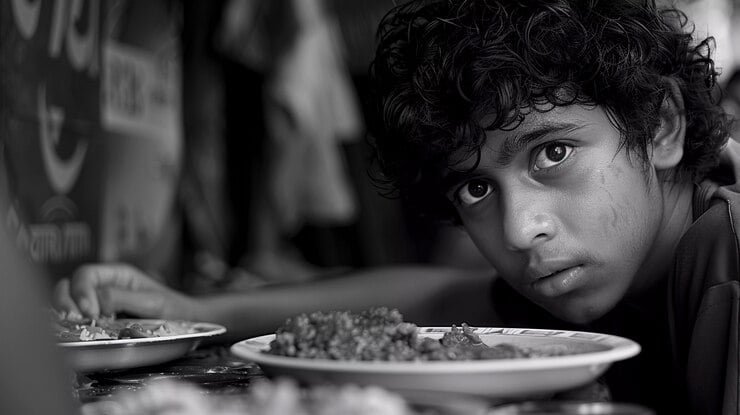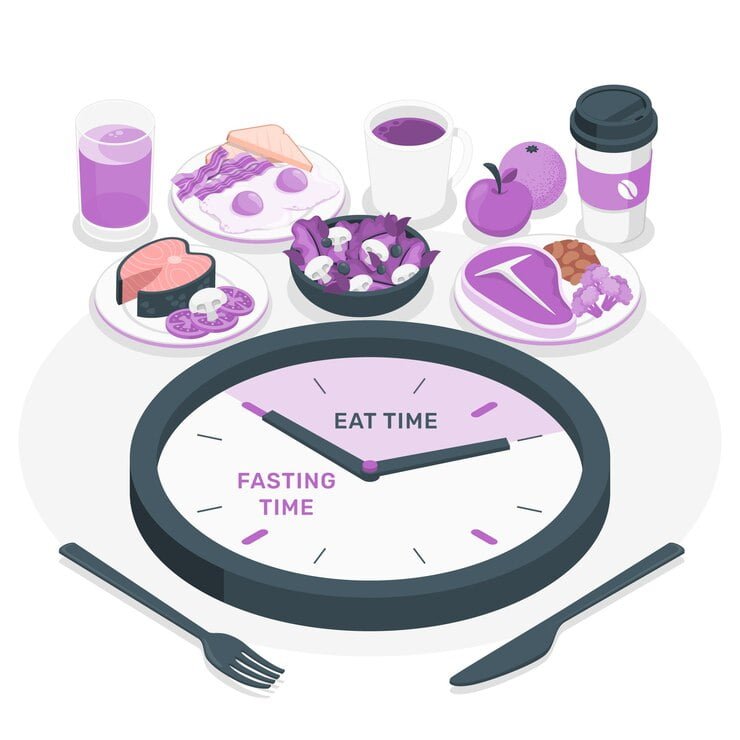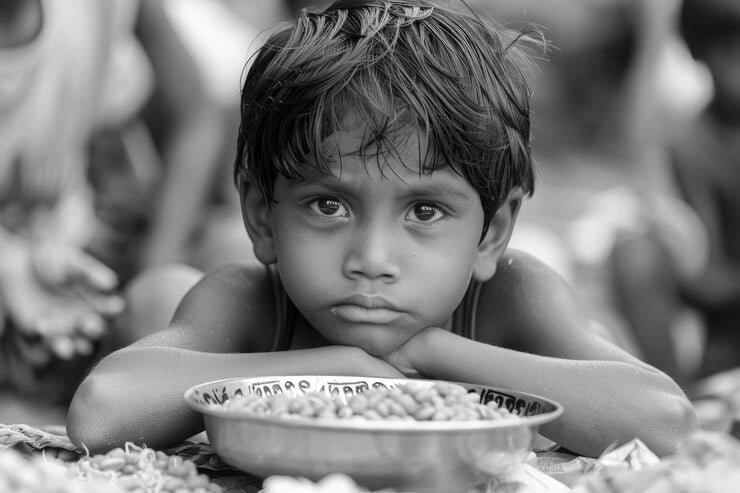Table of Contents
Can Human go without food
Fasting and lack of food have been topics of intrigue for centuries. People may choose to fast for religious, medical, or personal reasons, while others may face circumstances such as famine or disaster that force them to go without food. The human body, however, is remarkably flexible. But how long can a human actually live without food? What are the stages the body goes through and what are the benefits and risks of fasting? This article delves deeper into these questions, providing a comprehensive overview of how long humans can survive without food and the fascinating biology behind it.

How long can a healthy person survive without food?
1. Average Time Frame Without Eating
On average, a healthy human can survive for 30 to 40 days without food, as long as they have access to water. In some extreme cases, people live as long as 60-70 days, although this is highly unusual and depends on several important factors such as the individual’s fat stores, muscle mass, and overall health. .
The body first turns to glycogen (stored glucose) for energy. Once it’s depleted, it goes into fat stores, and eventually, in prolonged starvation, it begins to break down muscle and other tissues for energy. Most healthy individuals can survive for several weeks if water is available, although quality of life declines rapidly during this period.
2. IMPORTANCE OF HYDRATION
Humans can survive for weeks without food, the same cannot be said for water. The human body can only survive 3 to 7 days without water. Dehydration can rapidly lead to organ failure and death, making hydration a huge stressors in survival situations. Water helps regulate body temperature, transport toxins and nutrients, and life cannot survive without it.
What happens to the body when you don’t eat?
When deprived of food, the body goes through several stages, each marked by a different metabolic process.
1. Stage 1: Glycogen depletion (first 24-48 hours)
When you stop eating, your body’s first source of energy is glycogen which is stored in the liver and muscles. Glycogen is converted to glucose, which provides immediate energy to your cells. This phase lasts about 24 to 48 hours, during which your energy levels remain relatively stable, although you may feel light-headed or tired.
2. Phase 2: Ketosis (Days 2 to 7)
After your glycogen stores are depleted, your body enters a state called ketosis, where it starts burning fat for energy. The liver converts fat into ketones, which are used to fuel the brain and other organs. During this period, weight loss is rapid, and appetite may decrease. Many fasting enthusiasts cite ketosis as a time when they experience increased mental clarity and focus.
3. Stage 3: Muscle Breakdown (After 7 Days)
After the body’s fat reserves are significantly depleted, it enters a dangerous phase where it begins to break down muscle tissue for protein. This leads to muscle wasting, weakness, and eventually organ failure. At this stage the body is essentially eating itself to survive, and death is imminent without the reintroduction of food.
Factors that affect how long you can survive without food
Many factors affect how long a person can survive without food, with some individuals being able to survive longer than others.
1. Body fat stores
People with a high body fat percentage live longer without food, as fat is the body’s main source of energy during starvation. However, even people with significant fat reserves cannot survive indefinitely without food, as prolonged fasting breaks down muscles and organs.
2. HYDRATION LEVEL
As mentioned earlier, hydration is very important. Water helps maintain essential bodily functions and supports the body’s metabolism during fasting. Individuals who drink water regularly during food shortages can live much longer than those who do not.
3. Overall Health
People with chronic health conditions such as diabetes, heart disease, or autoimmune disorders may be more vulnerable during fasting. Their bodies may not be able to withstand the stress of prolonged starvation very well, making it dangerous to go without food for long periods of time.
4. Age
Younger, healthier people can survive longer without food due to stronger metabolic functions. Conversely, the elderly, especially those with pre-existing health problems, are more susceptible to malnutrition and dehydration.

Benefits of Fasting for Humans
Despite the dangers of long-term starvation, short-term fasting offers several potential health benefits. Fasting has been practiced for centuries for religious and medical purposes, and modern science has revealed many benefits of intermittent and controlled fasting.

1. Weight Loss and Fat Burning
During fasting, the body quickly burns through glycogen and goes into fat stores, making it an effective way to lose weight. Unlike traditional diets that restrict daily caloric intake, fasting allows the body to use fat for fuel, leading to faster fat loss.
2. Better Mental Clarity
Many people experience improved mental focus and clarity during fasting, especially during the ketosis phase. Ketones are a powerful fuel source for the brain, and fasting can improve neuroplasticity, cognitive function and memory.
3. Cellular Repair and Autophagy
Fasting activates a process called autophagy, in which the body removes damaged cells and regenerates new cells. It can promote cellular repair, improve immune function, and even reduce the risk of diseases like cancer and Alzheimer.
4. Improved Metabolism and Insulin Sensitivity
Intermittent fasting can improve insulin sensitivity and promote more efficient glucose metabolism, which can reduce the risk of type 2 diabetes. It also regulates metabolism and can help people manage their weight more effectively.
5. Longevity and Anti-aging
Several studies show that regular, controlled fasting can extend life. Fasting has been linked to slow aging, improved mitochondrial function, and protection against age-related diseases. Some researchers believe that calorie restriction and fasting activate longevity genes.
When is fasting dangerous?
Although fasting has its benefits, prolonged fasting and starvation can be fatal. It is important to recognize these signs that fasting has become dangerous.
1. Hunger Symptoms
When the body goes into an extended period without food, it begins to shut down non-essential functions to conserve energy. Common symptoms of hunger include:
- Extreme Fatigue
- Dizziness and Confusion
- Weakness and muscle wasting
- irregular heart beats
- organ failure
Once the body starts breaking down muscle tissue for energy, survival becomes difficult. If food is not reintroduced, death from starvation is inevitable.
2. Psychological and emotional effects
Fasting, especially when forced or prolonged, can have severe psychological effects. Nutrient deficiency affects brain function, resulting in irritability, anxiety and in extreme cases hallucinations . In survival situations, mental health can deteriorate as physical hunger increases.
What to do in a survival situation without food?
In survival situations where food is not available, the priority should be hydration. Here are some tips to increase your chances of survival:
1. Stay Hydrated
Water is more important than food in the short term. Drinking water regularly will help maintain body functions and prevent dehydration. Find clean water sources or purify water when possible.
2. Save Energy
Limit physical activity to conserve energy. The less energy you use, the slower your body will burn through its fat and muscle reserves. Get maximum rest and avoid unnecessary movement.
Here’s a table summarizing key information about how long can humans go without food, factors affecting survival, and related health considerations:
| Topic | Details |
|---|---|
| Average Survival Time Without Food | 30-40 days (can extend to 60-70 days in extreme cases, depending on various factors) |
| Importance of Hydration | Survival without water is only 3-7 days. Water is crucial for maintaining bodily functions and prolonging life. |
| Initial Phase (First 24-48 Hours) | Body uses glycogen reserves for energy. Energy levels may drop, but essential functions are maintained. |
| Second Phase (2-7 Days) | Body enters ketosis, burning fat for energy. Mental clarity and focus may improve. |
| Final Phase (After 7 Days) | Body starts breaking down muscle tissue for protein. Severe muscle loss and potential organ failure occur. |
| Factors Affecting Survival | – Body Fat Reserves: More fat allows longer survival. – Hydration Levels: Essential for prolonging life. – Overall Health: Chronic conditions impact survival time. – Age: Younger and healthier individuals can survive longer. |
| Signs of Starvation | – Severe fatigue – Dizziness and confusion – Weakness and muscle loss – Irregular heartbeats – Organ failure |
| Mental Health Effects | Short-term fasting may improve mental clarity. Prolonged fasting can lead to irritability, anxiety, and severe psychological issues. |
| Health Benefits of Controlled Fasting | – Weight loss – Improved metabolism – Enhanced mental clarity – Cellular repair and autophagy – Potential longevity benefits |
| What to Do in a Survival Situation | – Stay Hydrated: Drink water regularly. – Conserve Energy: Limit physical activity to slow metabolism. |
| Differences Between Intermittent Fasting and Starvation | Intermittent fasting is planned and typically safe. Starvation is unintentional and leads to severe health issues. |
Here is a comprehensive FAQ section for the article “How long can a human live without food?”:
Frequently Asked Questions (FAQ)
1. How long can a healthy person survive without food?
A healthy adult can usually survive 30 to 40 days without food, provided they are adequately hydrated. In extreme cases, some individuals live as long as 60-70 days. However, survival time depends on factors such as body fat, overall health, and hydration levels.
2. How does hydration affect survival without food?
Hydration is critical to survival. While humans can survive several weeks without food, they can only survive 3-7 days without water. Dehydration accelerates the process of organ failure and death, making water essential during any period of food deprivation.
3. What does long fasting do to the body?
Initially, the body uses glycogen reserves for energy. After they are depleted, it enters a state of ketosis, where it burns fat for energy. Over time, the body begins to break down muscle tissue for protein, causing severe muscle damage and possible organ failure.
4. Are there health benefits of fasting?
Yes, controlled fasting can offer many benefits, including weight loss, improved metabolism, and improved mental clarity. It also promotes autophagy, which is the body’s way of cleaning up damaged cells and regenerating new cells. However, these benefits are generally associated with short-term intermittent fasting rather than prolonged fasting.
5. How does fasting affect mental health?
Fasting can improve mental clarity and focus, especially during ketosis. However, prolonged or extreme fasting can have a negative impact on mental health, causing irritability, anxiety, and in severe cases hallucinations or depression.
6. When should I seek medical attention while fasting?
If you experience symptoms such as severe fatigue, dizziness, confusion, weakness, or irregular heartbeat while fasting, it is important to seek medical attention immediately. These may be signs of severe hunger or dehydration, which require immediate intervention.
7. Can children and the elderly survive without food like adults?
No, children and the elderly have different survival rates. Children have high energy needs and cannot go without food for long periods of time. Elderly, especially those with existing health conditions, may experience severe complications and have a shorter survival time without food.
8. Is intermittent fasting the same as starvation?
No. Starvation refers to prolonged and involuntary deprivation of food, which can lead to serious health problems and is not safe or sustainable.
9. How can I manage energy during long periods without food?
In a survival situation, energy management includes maintaining physical activity and staying hydrated. Limiting movement helps slow the body’s metabolism, conserve energy and increase survival time.
10. What should I do if I don’t have food but I have access to water?
If you have access to water but not food, focus on staying hydrated. Water is essential for maintaining bodily functions and prolonging life. Additionally, try to find food sources as quickly as possible, and conserve your energy to minimize the rate at which your body uses up its fat and muscle reserves.
This FAQ section addresses common concerns about fasting and surviving without food, offering clear and practical answers for readers.
Conclusion
The human body can survive for weeks without food, thanks to its ability to adapt and use stored energy. While people can go without food for long periods of time, water is far more important for survival. That said, starvation brings with it dangerous consequences, and food shortages should never be taken lightly. However, short-term fasting offers significant health benefits, including weight loss, improved metabolism, and cellular repair.
If you find yourself in a situation where food is scarce, prioritize water intake and conserve your energy. And remember, although fasting can promote health, prolonged starvation is fatal and should be avoided at all costs. Read more


Can you be more specific about the content of your article? After reading it, I still have some doubts. Hope you can help me.
Přijetí hypoteční platby může být problematické pokud
nemáte rádi čekání v dlouhých řadách , vyplnění intenzivní formuláře ,
a odmítnutí úvěru na základě vašeho úvěrového skóre .
Přijímání hypoteční platby může být problematické, pokud nemáte rádi čekání v dlouhých řadách
, podávání extrémních formulářů , a odmítnutí úvěru na základě vašeho úvěrového skóre .
Přijímání hypoteční platby může být problematické , pokud nemáte rádi čekání v dlouhých řadách , vyplnění extrémních formulářů a odmítnutí úvěrových rozhodnutí založených na úvěrových skóre .
Nyní můžete svou hypotéku zaplatit rychle a efektivně v České republice. https://groups.google.com/g/sheasjkdcdjksaksda/c/VaAED9VJd1o
Přijetí hypoteční platby může být problematické pokud nemáte
rádi čekání v dlouhých řadách , vyplnění intenzivní formuláře
, a odmítnutí úvěru na základě vašeho úvěrového skóre .
Přijímání hypoteční platby může být problematické, pokud nemáte rádi
čekání v dlouhých řadách , podávání extrémních formulářů , a odmítnutí
úvěru na základě vašeho úvěrového skóre . Přijímání hypoteční platby může být problematické , pokud nemáte rádi čekání v
dlouhých řadách , vyplnění extrémních formulářů a odmítnutí úvěrových rozhodnutí založených na úvěrových skóre .
Nyní můžete svou hypotéku zaplatit rychle a efektivně
v České republice. https://groups.google.com/g/sheasjkdcdjksaksda/c/VaAED9VJd1o
Thank you for your sharing. I am worried that I lack creative ideas. It is your article that makes me full of hope. Thank you. But, I have a question, can you help me?
Can you be more specific about the content of your article? After reading it, I still have some doubts. Hope you can help me.
Thank you for your sharing. I am worried that I lack creative ideas. It is your article that makes me full of hope. Thank you. But, I have a question, can you help me?